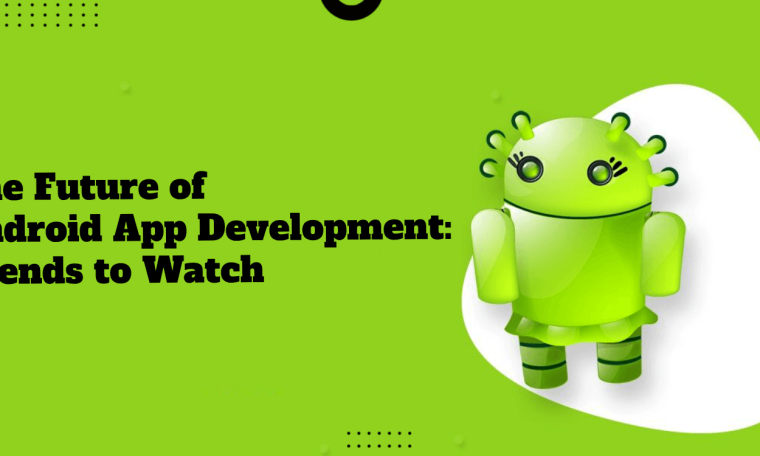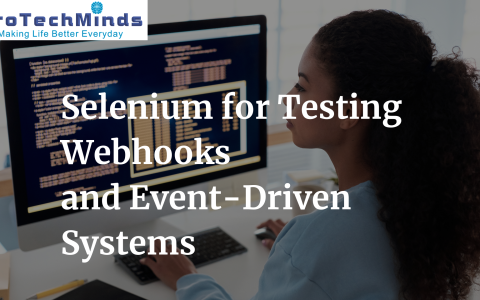
In the ever-evolving landscape of technology, Android app development continues to push boundaries and redefine user experiences. As we move further into the 21st century, several key trends are shaping the future of Android app development. From emerging technologies to changing user behaviors, staying ahead of these trends is crucial for developers looking to create impactful and successful apps. In this blog post, we’ll explore some of the most prominent trends to watch in the world of Android app development.
Artificial Intelligence and Machine Learning Integration:
Artificial Intelligence (AI) and Machine Learning (ML) are revolutionizing the way Android apps function. Integrating AI and ML algorithms into Android app development services can provide personalized experiences, predictive analytics, and automation of various tasks. For example, AI-powered chatbots can enhance customer support services, while ML algorithms can analyze user data to offer tailored recommendations. As AI and ML technologies become more accessible, we can expect to see an increasing number of Android apps leveraging these capabilities to deliver smarter and more efficient solutions.
Augmented Reality (AR) and Virtual Reality (VR):
AR and VR technologies have the potential to transform how users interact with Android apps, particularly in gaming, entertainment, and retail sectors. With the introduction of frameworks like ARCore and Daydream, developers have the tools to create immersive AR and VR experiences on Android devices. From virtual try-on features in shopping apps to interactive gaming environments, the possibilities are endless. As AR and VR hardware becomes more widespread and affordable, we can anticipate a surge in demand for apps that harness these technologies to deliver captivating experiences.
Internet of Things (IoT) Integration:
The Internet of Things (IoT) ecosystem continues to expand, connecting various devices and enabling seamless communication between them. Android app developers are increasingly incorporating IoT functionality into their applications to control smart home devices, monitor health and fitness metrics, and automate daily tasks. By leveraging IoT platforms and APIs, developers can create interconnected experiences that enhance convenience and efficiency for users. As the adoption of IoT devices continues to grow, so too will the demand for Android apps that seamlessly integrate with these technologies.
5G Technology:
The rollout of 5G networks promises faster data speeds, lower latency, and greater connectivity, unlocking new possibilities for Android app developers. With 5G, apps can deliver high-definition streaming, real-time multiplayer gaming, and instant access to cloud-based services with minimal lag. Developers can optimize their apps to take advantage of 5G capabilities, providing users with smoother performance and enhanced experiences. As 5G infrastructure becomes more widespread, we can expect to see a surge in demand for apps that harness the full potential of this transformative technology.
Progressive Web Apps (PWAs):
Progressive Web Apps (PWAs) blur the lines between traditional web applications and native mobile apps, offering the best of both worlds. These lightweight, fast-loading web apps can be installed directly onto a user’s device and accessed offline, eliminating the need for traditional app stores. With features like push notifications and offline support, PWAs provide a seamless user experience across devices. Android app developers are increasingly adopting PWA principles to reach a broader audience and simplify the app distribution process.
Enhanced Privacy and Security Measures:
With growing concerns about data privacy and security, Android app developers must prioritize the protection of user information. This includes implementing robust encryption protocols, secure authentication mechanisms, and stringent data access controls. Additionally, compliance with regulations such as GDPR and CCPA is essential to build trust with users and avoid potential legal repercussions. As cyber threats become more sophisticated, developers will need to stay vigilant and proactive in safeguarding user data against unauthorized access and breaches.
Cross-Platform Development:
Cross-platform development frameworks like Flutter and React Native are gaining traction among Android app developers due to their ability to streamline the app development process and maximize code reusability. By writing code once and deploying it across multiple platforms, developers can significantly reduce time-to-market and development costs. These frameworks offer native-like performance and access to platform-specific features, making them an attractive option for building high-quality Android apps.
Voice Technology Integration:
Voice technology is rapidly becoming a staple in the world of Android app development. With the proliferation of smart speakers, virtual assistants, and voice-activated devices, users are increasingly accustomed to interacting with technology through voice commands. Android app developers are leveraging technologies like Google Assistant and Amazon Alexa to integrate voice capabilities into their apps, enabling hands-free navigation, search, and task execution. Voice-enabled interfaces not only enhance accessibility for users but also open up new avenues for app personalization and engagement.
Focus on Accessibility and Inclusivity:
Accessibility is no longer an afterthought but a fundamental consideration in Android app development. Developers are recognizing the importance of designing apps that are inclusive and accessible to users with disabilities. This includes implementing features such as screen readers, voice commands, high contrast modes, and gesture-based navigation to accommodate diverse user needs. By prioritizing accessibility, developers can ensure that their apps reach a broader audience and provide a positive user experience for everyone.
Blockchain Integration:
Blockchain technology is gaining traction beyond cryptocurrency applications, with potential use cases in areas such as finance, supply chain management, and digital identity verification. Android app developers are exploring ways to integrate blockchain functionality into their applications to enhance security, transparency, and trust. From decentralized finance (DeFi) apps to blockchain-based gaming platforms, the possibilities for leveraging blockchain technology on Android devices are vast. As blockchain adoption continues to grow, we can expect to see an increasing number of apps incorporating blockchain capabilities to offer innovative solutions to users.
Personalization and Contextualization:
Personalization has become a cornerstone of modern app experiences, allowing developers to tailor content and features to individual user preferences and behaviors. By leveraging data analytics, machine learning algorithms, and user feedback, Android app developers can create personalized experiences that resonate with users on a deeper level. Contextualization, which involves delivering relevant content based on the user’s location, time of day, or activity, further enhances the app’s relevance and utility. By focusing on personalization and contextualization, developers can increase user engagement, retention, and satisfaction.
Sustainability and Green Technologies:
With growing awareness of environmental issues, there is a rising demand for sustainable and eco-friendly technologies in all sectors, including app development. Android app developers are exploring ways to reduce the environmental footprint of their apps by optimizing code, minimizing resource consumption, and leveraging renewable energy sources. Additionally, developers can incorporate features that promote eco-friendly behaviors, such as carbon footprint tracking, energy-saving modes, and sustainable product recommendations. By embracing sustainability principles, developers can contribute to a greener future while also appealing to environmentally-conscious users.
In conclusion,
The future of Android app development is brimming with exciting opportunities and challenges. From harnessing the power of AI and AR to embracing 5G connectivity and prioritizing user privacy, developers must stay abreast of emerging trends to create innovative and impactful apps. By leveraging these trends effectively, Android app developers can deliver superior user experiences that drive engagement, retention, and ultimately, success in an increasingly competitive marketplace.



